Why an Anti-Detection Browser is Better Than a VPN to Protect Your Account
Time: 2024-07-27 16:55 Click:
In the digital age, whenever we surf the Internet, especially when we rely on Wi-Fi connections, our devices and the information they store have quietly become vulnerable targets in an invisible war. Hackers and spyware lurk like ghosts, spying on our every step online. Not only can they see every corner you browse, but they can also easily intercept your communications and even reveal the mystery of your physical location through sophisticated IP tracking technology. This is by no means a science fiction plot, but an increasingly severe real challenge. Fortunately, technological advances have also built several solid lines of defense for us.
Unveiling the protective power of VPN

The VPN (virtual private network) client is an invisible cloak that shuttles through the digital fog. It does not directly connect you to the destination website, but cleverly sets up an encrypted tunnel between your device and VPN servers around the world. This tunnel is like a secret passage, ensuring that your data is protected from snooping and tampering during transmission. However, just as any security mechanism has its limitations, VPN is not foolproof.
Facing the invisible challenges of VPN
Although VPN technology is quite mature, emerging technologies such as WebRTC and DNS attacks have sprung up like mushrooms after rain, posing new threats to existing security systems. This means that even users who rely on VPN for a long time need to remain vigilant, regularly review and strengthen their own protection network. For potential encryption cracking risks, especially those connections using older protocols (such as PPTP), it is necessary to decisively upgrade to more secure alternatives.

In addition, the "traffic leakage" problem of VPN should not be ignored. In some cases, data that should have been encrypted may be exposed due to connection interruption or insufficient IPv6 support. What is more alarming is that the complex network environment where IPv4 and IPv6 coexist may allow carefully encrypted IPv4 traffic to be safe, while data packets carrying IPv6 addresses are inadvertently naked in the network.
The invisible art of anti-detection browsers
Facing the increasingly complex network environment, anti-detection browsers stand out with their unique camouflage. It is not just a browser, but also a set of carefully designed tools that can deeply modify the user's digital identity and make it invisible in the vast online world. By tampering with a series of key information such as browser fingerprints, user agents, HTTP headers, etc., the anti-detection browser makes it difficult for the user's real identity to be tracked and analyzed. As the name suggests, the core of the anti-detection browser is "anti-detection". It is not just a browser, but a highly integrated privacy protection system. Compared with VPN, which focuses on encryption and anonymity at the network level, the anti-detection browser goes deep into multiple dimensions such as browser fingerprints and user behavior patterns, achieving a more comprehensive and sophisticated privacy disguise. Through advanced features such as customizing digital fingerprints and simulating different user environments, it can make your online activities difficult to track, thereby greatly enhancing the security of data.
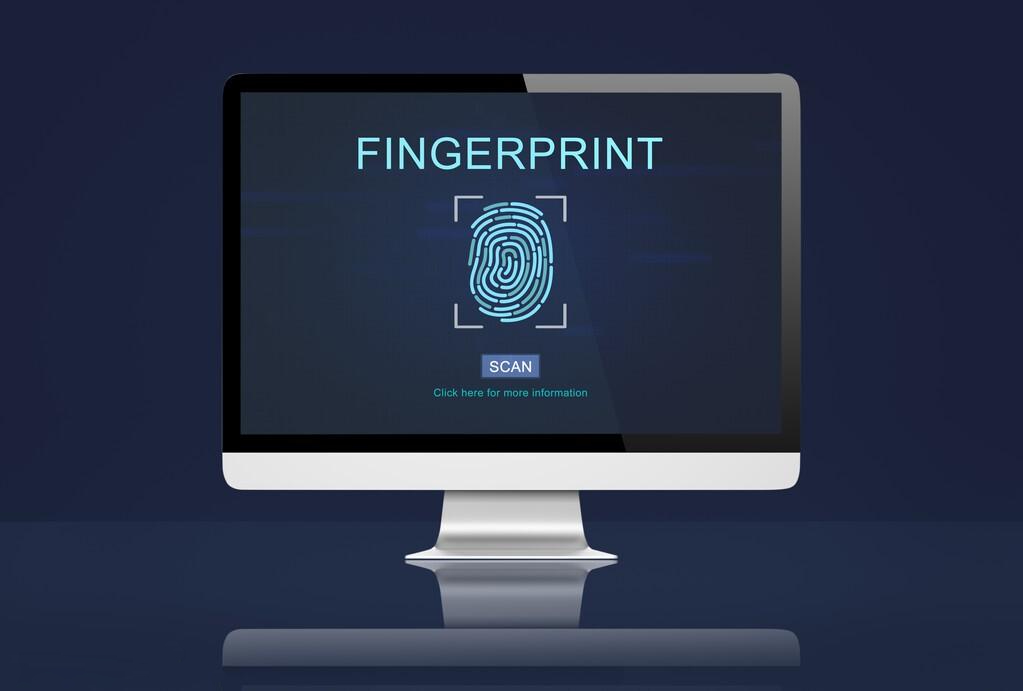
Combined with high-quality proxy services, it makes IP replacement possible, further blurring the user's network traces. However, it is worth noting that the effectiveness of the anti-detection browser depends not only on its ability to modify parameters, but also on the superb and hidden way of its implementation. Different products, even if they have similar functions, may leave completely different digital fingerprints in the eyes of the anti-fraud system.
All-round protection beyond VPN
While VPN can provide network anonymity and encrypted communication to a certain extent, it is powerless to hide the user's digital print. The anti-detection browser is different. It can deeply hide and customize a variety of digital information including browser fingerprints, user agents, and HTTP headers, making it difficult for even the most discerning network monitors to capture your true identity. This all-round privacy protection capability makes the anti-detection browser more advantageous when protecting multi-account data.
The ideal tool for multi-account management
For users who need to manage multiple online accounts, the anti-detection browser is an indispensable artifact. It can easily switch between different user environments to ensure that each account has an independent and difficult-to-identify digital identity. This means that even digital giants like Facebook and Google find it difficult to identify your fake account, not to mention government agencies. Therefore, whether you have multiple online identities for work needs or personal interests, the anti-detection browser can provide you with the most solid protection.
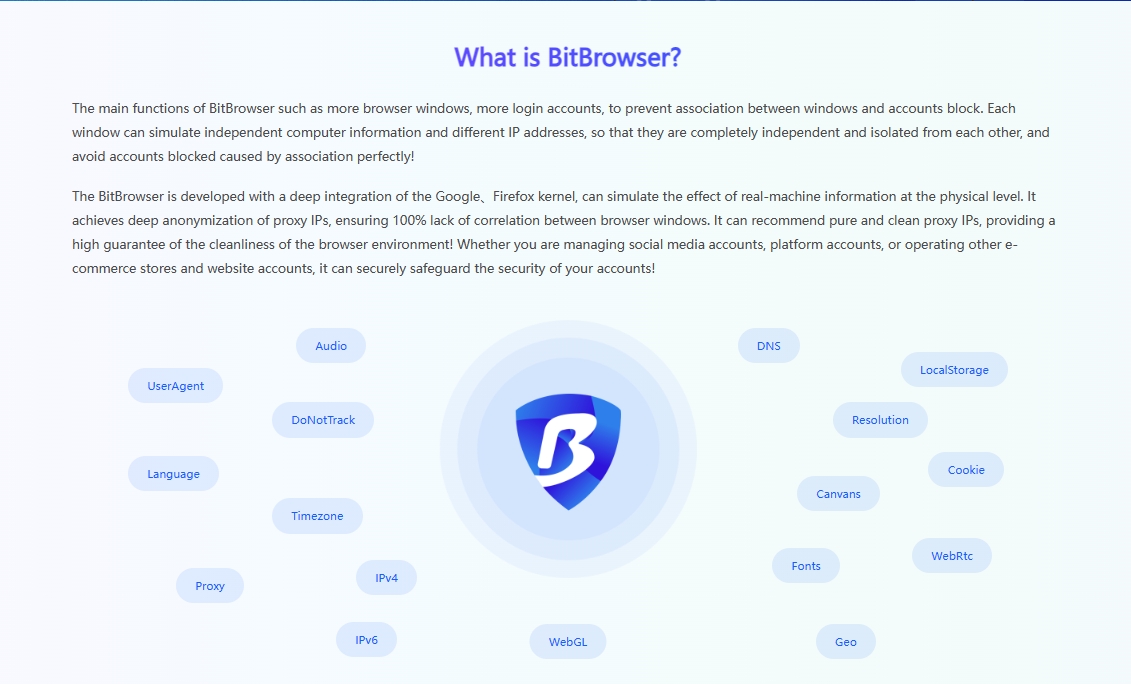
Of course, we also need to keep a clear mind when choosing data protection tools. Different services have different working principles and effects, so it is crucial to read and compare reviews of specific programs. In addition, we should also be wary of those seemingly tempting free services. Although they may save you money temporarily, once your personal data is leaked, the price you pay will be immeasurable. Therefore, we recommend that you give priority to those proven and well-reputed paid services, such as BitBrowser, when choosing an anti-detection browser.
Summary:
Anti-detection browsers have become a better choice for protecting multi-account data with their unique functional advantages and comprehensive privacy protection capabilities. BitBrowser is the leader among anti-detection browsers. Register and download to get 10 permanent free windows immediately. Click to get BitBrowser now. In this digital age full of challenges and opportunities, let us work together to protect our online privacy!
Popular Articles
See More
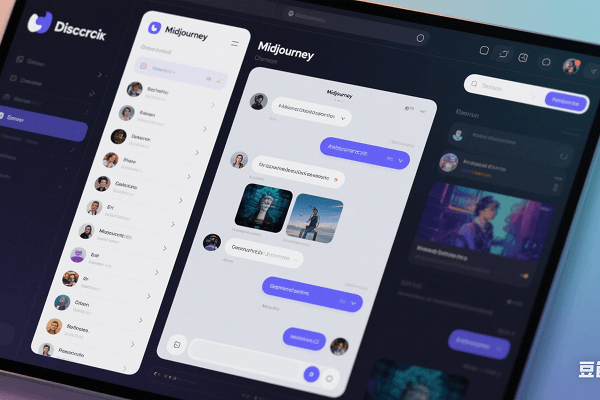 Discord "Cannot accept invitation to "Midjourney" channel solution
Discord "Cannot accept invitation to "Midjourney" channel solution IPv6 proxy access is limited? Why mainstream platforms do not support IPv6
IPv6 proxy access is limited? Why mainstream platforms do not support IPv6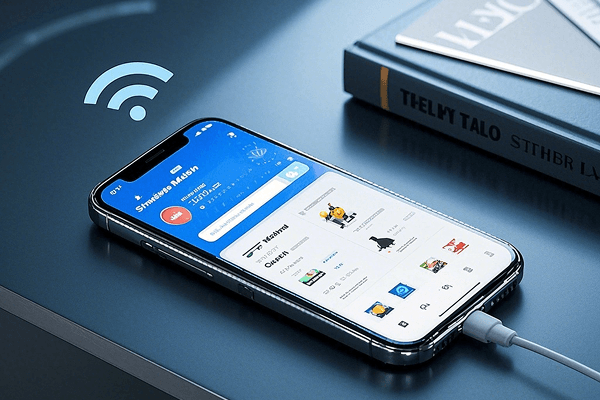 How to solve the TikTok "Hot videos list is empty" problem? Try Bit Cloud Phone
How to solve the TikTok "Hot videos list is empty" problem? Try Bit Cloud Phone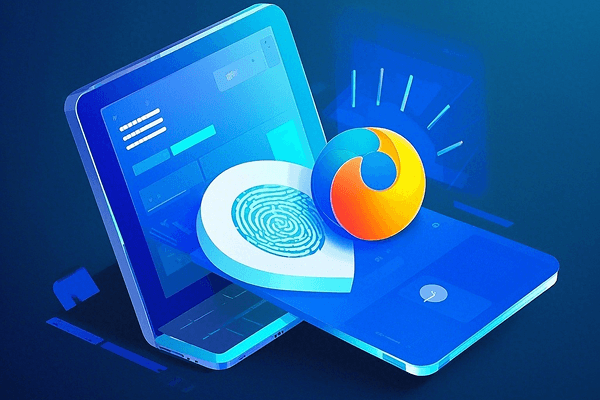 Choose BitBrowser for fingerprint browsers, and look for the only official website: bitbrowser.cn
Choose BitBrowser for fingerprint browsers, and look for the only official website: bitbrowser.cn
